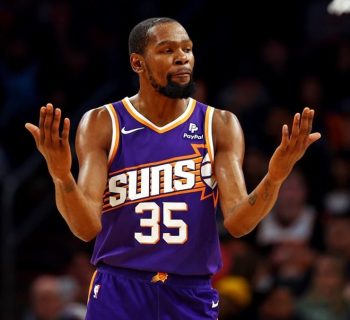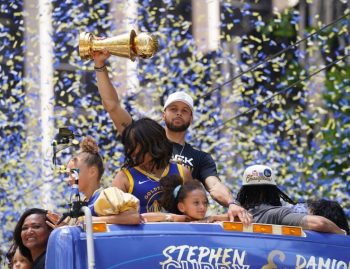NBA
College Basketball Has A Money Problem, But No Solution

College basketball saw its world rocked on Tuesday when the FBI made a two-year long investigation into the illegal paying of amateur players public for all the world to see.
Ten people total were arrested and charged with fraud and corruption. Those men included active assistant coaches from Auburn, USC, Arizona, and Oklahoma State, along with a prominent executive from Adidas.
All the FBI did this week was confirm what was potentially the worst kept secret in college sports: that high-profile high school athletes receive under-the-table benefits to attend certain schools and keep certain relationships with shoe companies, agents, financial planners, etc. once they make their jump to the NBA.
As the curtain is pulled back on the backdoor dealings of the grassroots basketball scene and the public receives more confirmation about how some of these basketball powerhouse schools continuously get the best of the best, surely there will be more professional casualties. Already this probe has cost a Hall of Fame coach his job, as the University of Louisville announced Wednesday that Rick Pitino would be suspended from his duties. Pitino’s attorney later released in a statement that the coach “has, in effect, been fired.”
With the massive involvement the FBI seems to have in this matter, the smart guess would be to assume that Pitino isn’t the only prominent coach that will fall victim to this case. On Tuesday, Adidas executive Jim Gatto was arrested in the initial sweep by the authorities, making all of the schools with an Adidas sponsorship immediately look suspect. Just one day later, the FBI issued a subpoena to employees of Nike’s EYBL grassroots division, which runs their AAU basketball circuit.
These initial offenders appear to be the tip of the iceberg. Common sense would suggest that since the long arm of the law is now involved in how certain recruits make their college decisions things will certainly change. However, until the NCAA finds a better way to compensate their student-athletes, don’t hold your breath.
Yes, this is going to be a long and excruciating process for the NCAA. Once certain people involved are facing federal agents and the likes of jail time, they will turn over more information, dragging others down with them. For a while, maybe the recruiting process will get back to operating more organically. But in a multi-billion dollar business like college basketball, money will find its way back in.
Each year there are more than a few top prospects who come from families that are in need of assistance. That player, despite being just a kid, can be viewed as the family’s ticket out of their difficult situation. Those realities are what makes this entire scandal somewhat understandable. That certainly isn’t advocacy for cheating, but when you take into account the financial status of a high-profile player and his family, coupled with the impending millions that a university is set to make off of that individual, with no effective legal payout from the NCAA heading their way it almost makes the cause just.
Certainly, though, rules and laws were breached by these individuals and they will face the consequences as a result. The list of those involved will grow, and the pointed finger at who to blame will swing wildly in the direction of many. But until the conversation is had as to why this truly happening, nothing will ever change permanently for the better.
According to Forbes, Louisville’s team value in 2016 stood at $45.4 million, with their 2015 revenue reaching $45.8 million. Those are eye-popping numbers for a basketball team that doesn’t have to pay its players. An organization can only be as successful as its employees. So, while Louisville continues to be one of the nation’s top basketball programs as a result of their high-tier talent, their payout to these athletes reaches only to the price of tuition and room and board. Most of the players that help keep elite team’s like Louisville relevant don’t stay for more than a year or two.
In the documents released by the FBI, Gatto, agent Christian Dawkins and financial advisor Munish Sood are named directly as helping provide funding to a particular player.
The statement reads that Gatto, Sood, and Dawkins “conspired to illicitly funnel approximately $100,000 from company-1 to the family of Player-10, an All-American high school basketball player; to assist one or more coaches at University-6, a school sponsored by Company-1, and to further ensure that Player-6 ultimately retained the services of Dawkins and Sood and signed with Company-1 upon entering the NBA.”
Clear as day, the NCAA’s biggest problem is written in black and white by the FBI. These companies and agents know that players are more than willing to take money (truthfully, who wouldn’t?). When a player or player’s family recognizes their worth in a market that doesn’t let them cash in on it, their recruiting process becomes marred with wink-wink agreements from the schools that are recruiting said player, and ultimately the decision is made to attend whichever school is willing to bend the rules the most.
On Tuesday, the world saw for certain that this time the rules were bent to their breaking point. Dark days are ahead for college basketball during this scandal, but until the NCAA develops a reasonable way to compensate their athletes, the problem will never fully disappear.













